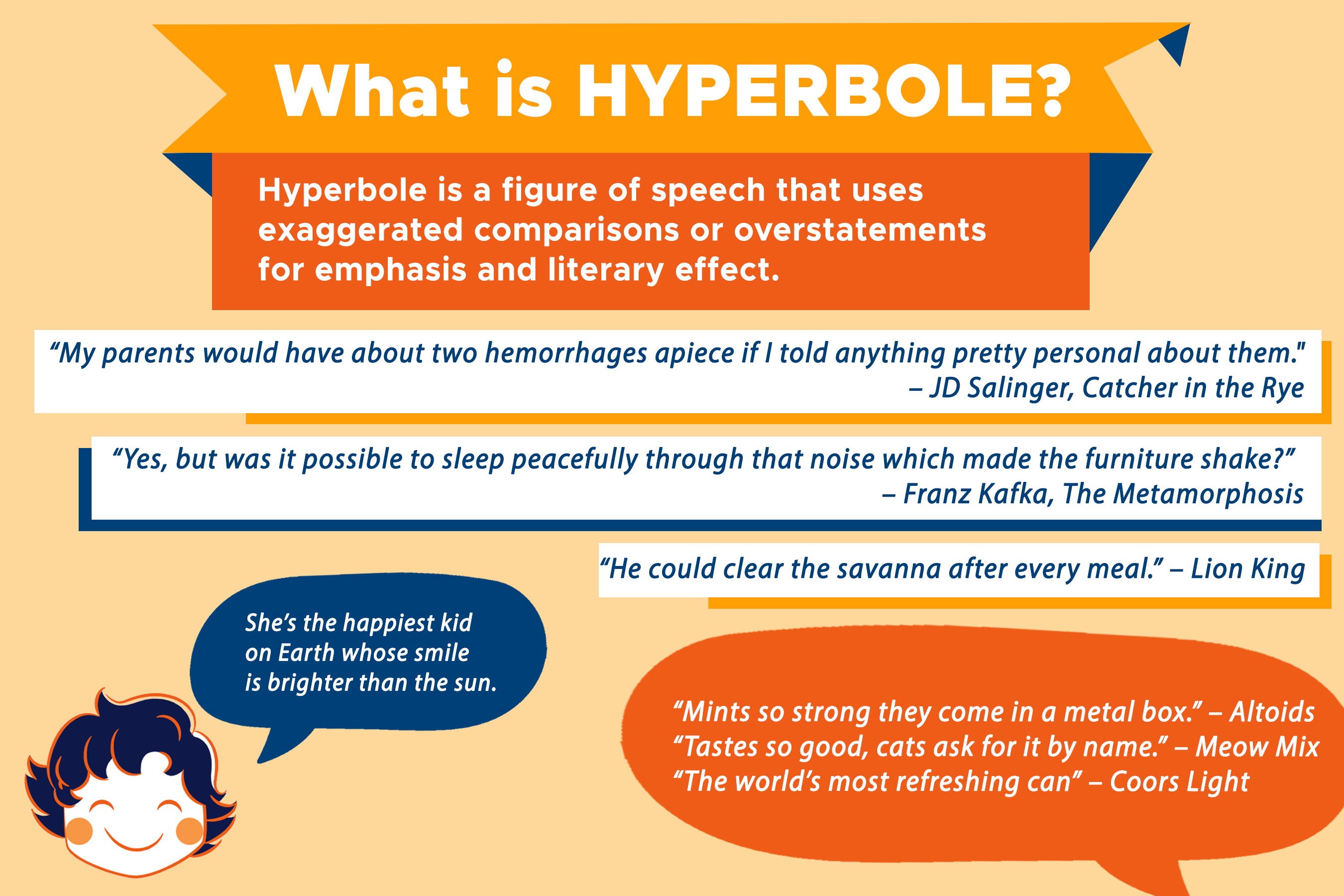
Hyperbole
Deep
Definition
Hyperbole,
from
the
Greek
hyper
(beyond)
and
ballein
(to
throw),
is
deliberate
exaggeration
beyond
believable
limits,
used
to
emphasize,
amuse,
or
shock.
It’s
not
meant
to
be
taken
literally
but
to
stretch
reality
so
far
that
it
reveals
truth
through
absurdity.
A
staple
of
rhetoric
and
humor,
hyperbole
magnifies
emotions
or
situations
to
an
extreme,
often
exposing
folly
or
irony.
In
satire,
it
transforms
mundane
flaws
into
outrageous
caricatures,
wielding
overstatement
as
a
weapon
to
provoke
laughter
or
outrage
while
spotlighting
underlying
issues.
Three
Examples
-
Literature:
In
Mark
Twain’s
The
Adventures
of
Tom
Sawyer,
Tom
claims
his
chores
are
so
unbearable
he’d
“rather
be
skinned
alive,”
exaggerating
to
highlight
youthful
melodrama. -
Everyday
Speech:
“I’ve
told
you
a
million
times”
overstates
repetition
to
express
frustration,
a
common
hyperbole
in
casual
dialogue. -
Satirical
Commentary:
“The
senator’s
ego
is
so
inflated,
it
could
float
the
national
debt”
mocks
arrogance
by
pairing
it
with
an
impossible
economic
feat.
How
It
Helps
a
Satirical
Journalist
Hyperbole
is
a
satirical
journalist’s
megaphone,
amplifying
flaws
to
absurd
heights
for
maximum
impact.
By
claiming
a
politician’s
speech
“lasted
longer
than
the
Ice
Age,”
the
writer
not
only
mocks
verbosity
but
invites
readers
to
laugh
at
the
overblown
comparison.
It
exposes
truth
through
excess—exaggerating
a
CEO’s
greed
as
“swallowing
whole
economies
for
breakfast”
underscores
real
exploitation
in
a
way
facts
alone
might
not.
This
bold
distortion
grabs
attention,
making
the
satire
both
entertaining
and
pointedly
critical.
Go to Source
Author: Ingrid Gustafsson
